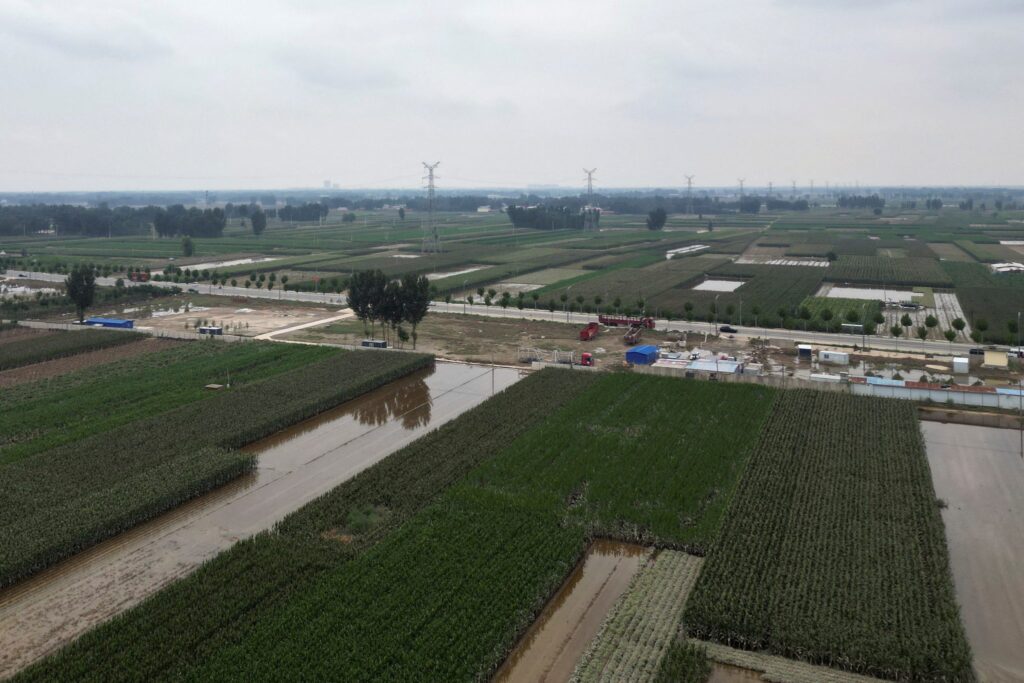Food & Climate
Several factors hinder the financing of the climate transition of China’s agri-food system, that country which is a major producer and consumer of agricultural products and food and a country feeding 1.4 billion people.
China ought to priorities a just and inclusive agri-food system climate transition, according to the United Nation Development Programmed (UNDP), today, and seen by “Food & Climate” platform.
The report that titled “Financing the climate transition in China’s agri-food systems”, said significant funding gaps exist to facilitate this transition.
Only 4.3% of global climate finance (approximately USD28.5bn in 2020) is allocated to agri-food systems, which is only one-seventh of that required to transition the sector.
While climate finance for the agri-food sector mostly comes from fiscal funds and development finance institutions, mobilising significant private capital is imperative to bridge the financing gap.
Multiple financing constraints
However, the agri-food sector faces multiple financing constraints, and China’s current policy schemes on green and inclusive finance are incompatible with the climate transition needs of the agri-food system, calling for further policy coordination and financial innovation.
Despite the efforts by China’s financial regulator to establish China’s transition finance system and to priorities agriculture in the transition agenda, innovation in transition finance instruments for agri-food systems remain nascent.

Currently, these transition finance instruments are primarily in the loan and bond market, while instruments like private equity venture capital IS private equity, insurance, carbon credit finance, blended finance, and supply chain finance also show potential.
Notably, large agri-food companies need to take a leadership role to mobilise and support their suppliers and more SMEs in this transition.
Several factors hinder the financing of the climate transition of China’s agri-food system, which is impeded by insufficient climaterelated information disclosure, the lack of credible transition plans, omission of scope 3 emission reduction by agri-food entities, and inadequate policy incentives.
Better coordination across existing financial, fiscal, and industrial policies can further realise the potential of finance supporting China’s agri-food climate transition and aligning it with the SDGs.
Recommendations
This report makes the following policy recommendations to tackle the identified obstacles:
1. Regulators should enhance climate-related information disclosure in the agri-food sector by establishing agri-food GHG emission accounting standards, information disclosure requirements, and monitoring system;
2. Regulators should guide and support agri-food entities in developing credible transition plans with clear regulatory requirements and technical assistance;
3. Governments should establish an enabling policy environment and strengthen policy incentives by a) establishing transition finance incentive policies focusing on the transition of agri-food supply chains, b) creating synergies between transition finance and inclusive finance policies, c) tilting existing agriculture supportive policies towards agri-food climate transition activities; and d) enhancing the government’s role as agri-food bond issuer.
While Chinese policy documents do not current include a clear definition of the term just transition, China did support the establishment of the UNFCCC Work Programme on Just Transition Pathways, agreed at COP27.
There are also some existing initiatives in China that share common ground with the principle of just transition, such as ‘inclusive finance’, ‘rural revitalisation’, and ‘common prosperity’, which support smallholders in the agri-food sector.
However, agriculture and food security is another critical component of just transition in the agrifood sector, which China has identified as a key priority in its National Climate Change Adaptation strategy 2035.

This commits to establish pilot projects to evaluate technologies for agriculture adaptation and climate-smart agriculture, as well as climate-friendly low-carbon agricultural product certification, according to UNDP report.

